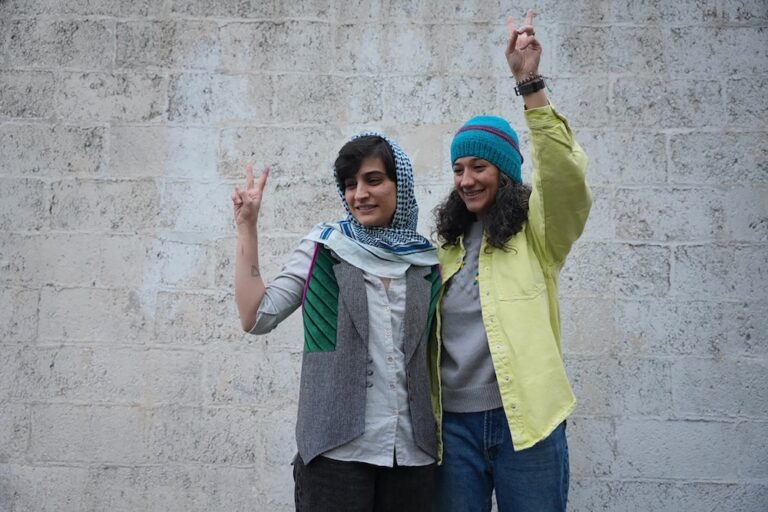During an event at the UN Human Rights Council in Geneva, a coalition of civil society organisations launched a set of standards that interpret States' human rights obligations in light of new technologies and surveillance capabilities.
On 20 September 2013, civil society organisations called upon the members of the Human Rights Council to assess whether national surveillance laws and activities are in line with their international human rights obligations.
The Snowden revelations have confirmed that governments worldwide continue to expand their spying capabilities, at home and abroad. Widespread surveillance is being conducted in violation of individuals’ rights to privacy and free expression, and is seldom regulated by strong legal frameworks that respect human rights.
With this in mind, on 20 September a coalition of civil society organisations launched the “International Principles on the Application of Human Rights to Communications Surveillance,” a set of standards that interpret States’ human rights obligations in light of new technologies and surveillance capabilities. The Principles are endorsed by over 260 civil society organisations around the world, and for the first time set out an evaluative framework for assessing surveillance practices in the context of international human rights law.
Civil society organisations presented the Principles during an event on the right to privacy, hosted by the governments of Germany, Norway, Austria, Hungary, Liechtenstein and Switzerland, at the 24th session of the Human Rights Council in Geneva.
Navi Pillay, the United Nations High Commissioner for Human Rights, speaking at the event, said that: “technological advancements have been powerful tools for democracy by giving access to all to participate in society, but increasing use of data mining by intelligence agencies blurs lines between legitimate surveillance and arbitrary mass surveillance.”
Acknowledging that States have a legitimate task of protecting national security, the High Commissioner stressed that this must done in compliance with the law and any actions must be regulated and monitored by the judiciary.
Joining the High Commissioner was Frank La Rue, the UN Special Rapporteur on freedom of opinion and expression, who recently released a report which details the widespread use of state surveillance of communications, stating that such surveillance severely undermines citizens’ ability to enjoy a private life, freely express themselves and enjoy their other fundamental human rights.
Speaking at the event, the UN Special Rapporteur remarked that: “previously surveillance was carried out on targeted basis but the Internet has changed the context by providing the possibility for carrying out mass surveillance. This is the danger.”
In this new context, Frank La Rue stressed that all restrictions to rights have to be established by law, and implemented by legal institutions as well as supported by independent judicial and parliamentary oversight mechanisms. With the aim of taking the discussion forward and ensuring concrete actions, the Special Rapporteur suggested the organisation of a special session at the Human Rights Council on surveillance and the right to privacy, and a preparatory multi-stakeholder seminar, as well as the appointment of a temporary special expert to lead the initiative.
Representatives of Privacy International, the Electronic Frontier Foundation, Access, Human Rights Watch, Reporters Without Borders, Association for Progressive Communications, and the Center for Democracy and Technology all took part in the event.
Carly Nyst, Head of International Advocacy at Privacy International, emphasised the fundamental importance of the right to privacy: “State surveillance severely threatens individuals’ rights to privacy, free expression and free association; impedes an open and democratic society; hinders a free press; breeds conformity and undermines innovation; and strikes at the heart of human dignity and autonomy. It must only be conducted in the most exceptional circumstances, under the watchful eye of an independent judicial authority and strong oversight mechanisms.”
Cynthia Wong, Senior Internet Researcher at Human Rights Watch, warned: “Without stronger protections for online privacy, we are quickly headed toward a world where pervasive surveillance is the norm and privacy disappears the second we go online. As mobile and Internet adoption expands globally, every government should ensure people can use these technologies without fear of invasive and disproportionate intrusions into their private lives.”
Lucie Morillion, Head of Reporters Without Borders Advocacy Department, stressed that: “more efforts must be done to regulate and monitor the export of surveillance technologies to countries which utilise them to identify and track down dissidents, human right defenders and journalists, who are disclosing public interest information. Without the adoption and implementation of adequate protection mechanisms of these individuals, the right to information is challenged and investigatory journalism is at risk.”
In presenting the 13 Principles, Katitza Rodriguez, International Rights Director at the Electronic Frontier Foundation, urged: “member states to assess their national surveillance laws and bring them into compliance with the 13 benchmarks. We must put an end to unchecked, suspicionless, mass spying online and worldwide. Privacy is a human right, and needs to be protected as fiercely as all other rights”.
Fabiola Carrion, Policy Counsel at Access, while presenting the Principles, concluded: “In Access – an organization that defends and extends the fundamental rights of digital users at risk – we are extremely concerned with the massive surveillance practices perpetrated by States, from authoritarian regimes to those with democratic institutions. As such, we enthusiastically join this proactive effort to place a framework for States to fulfill their human rights obligations under international law.”
Following the event remotely from South Africa, Anriette Esterhuysen, Executive Director of the Association for Progressive Communications, wrote: “Privacy and security should not be set off against one another. A robust and trusted internet needs both, and they are mutually reinforcing. The same cannot be said for privacy and mass surveillance. Mass surveillance undermines privacy in every possible sense of what the term means: from a human rights perspective and the perspective of a robust, secure and trusted internet.”
Matthew Shears, Director for Global Internet Policy and Human Rights with the Center for Democracy & Technology, said: “We believe these principles outline the essential elements for applying human rights to communications surveillance and look forward to collaborating with human rights institutions and human rights advocates to promote these principles globally.”
Find out more about the Principles at NecessaryandProportionate.org.
Privacy International
Carly Nyst, Carly@privacy.org
+44 778 828 6389
Access
Fabiola Carrion – fabiola@accessnow.org
Electronic Frontier Foundation
Katitza Rodriguez – katitza@eff.org
Association for Progressive Communication
Shawna Finnegan – shawna@apc.org
Joy Liddicoat – joy@apc.org
Human Rights Watch
Cynthia Wong – wongc@hrw.org
Center for Democracy and Technology
Matthew Shears – mshears@cdt.org



